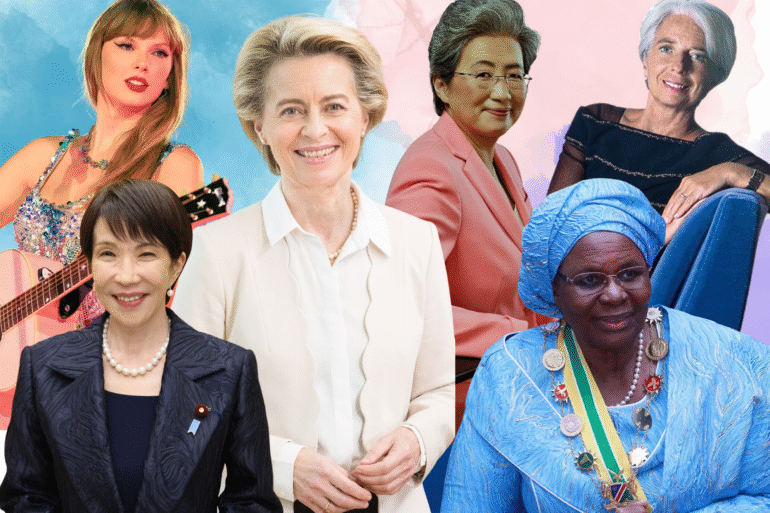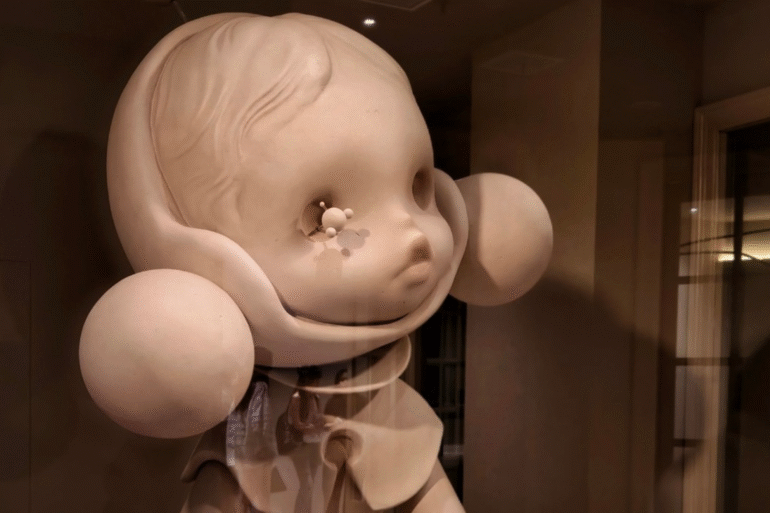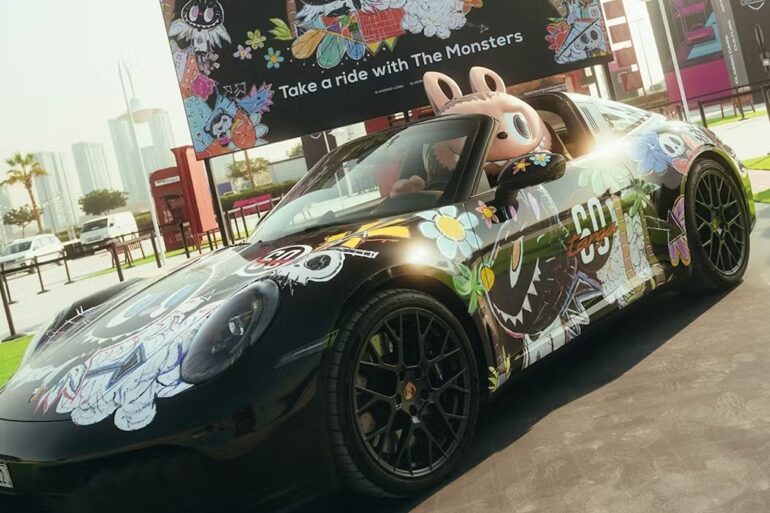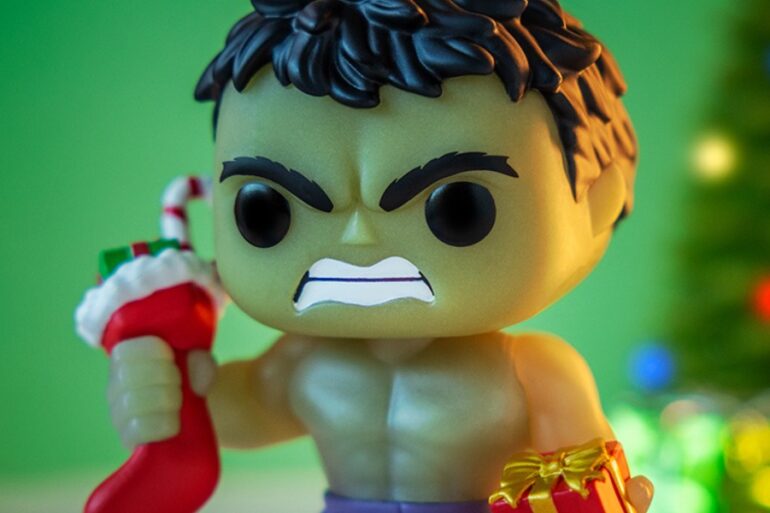A decade ago, Wang Ning only had a tiny store in Beijing. Now he’s among China’s richest tycoons and the youngest in the top 10 list.
They’re not just adorable little monsters or everyone’s favorite bag charm—or Gen Z and millennials’ most prized displays. Labubu dolls are one of the most profitable money-making businesses today, turning Pop Mart founder Wang Ning into China’s 10th richest man to date.
Wang, who is the chairman and CEO of the Beijing-based company, has surged into the top ranks of China’s wealthiest, proving how the rabbit-like doll with a mischievous grin can generate immense fortune in just a year. Wang’s net worth increased fourfold from $7.59 billion in 2024 to $22.7 billion in June 2025, according to Forbes Real-Time Billionaires List.
The 38-year-old’s income is based on his ownership stake in Pop Mart, which is equivalent to 48.73% of the company’s shares. Meanwhile, Forbes reported that the company’s Hong Kong-listed shares tripled to more than $270 this year.
This then made Wang the 10th richest man in China and the youngest member of the country’s wealthiest tycoons, which includes ByteDance founder Zhang Yiming, Nongfu Spring chairman Zhong Shanshan, and Tencent co-founder Ma Huateng. The Pop Mart visionnaire now ranks 92nd in the global ranking.
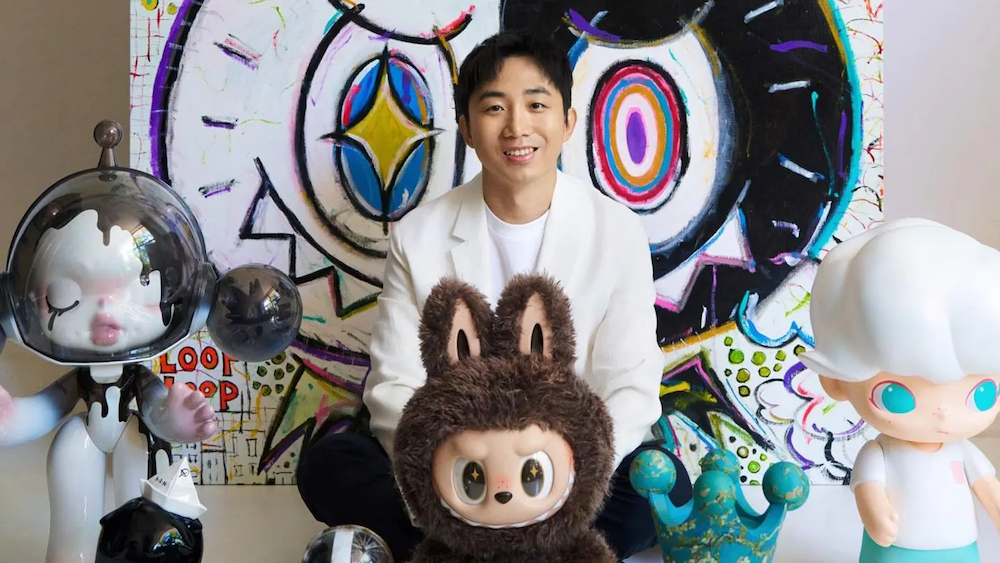


Related story: From Trolls to Labubu dolls: 10 iconic toys we were obsessed with over the last 30 years
From tiny Beijing shop to global toy leader
Pop Mart may be known as a worldwide toy leader today, but it actually started as a tiny store selling all sorts of knick-knacks in 2010. Things began taking off only six years later, when Wang decided to focus only on designer toys and began selling them in “blind boxes.”
Inspired by Japan’s vending machines that sell toys in mystery capsules, aka gashapon, Pop Mart’s “blind box” concept centers on selling collectible figures in sealed boxes. Customers wouldn’t know what is inside until these blind boxes have been purchased and opened; therefore, collecting them fuels a range of emotions, from excitement and anticipation to curiosity and a sense of surprise.
Pop Mart initially applied this addictive treasure-hunt dynamic to its first blind box series featuring the character Molly. Designed by Hong Kong-based artist Kenny Wong, Molly has since been capturing the hearts of toy enthusiasts for its emerald eyes, pouting lips, cute temperament, and vibrant outfits. The success of its blind box series set the scene for Pop Mart to expand its character lineup, often crafted through strategic collaborations with artists and brands.
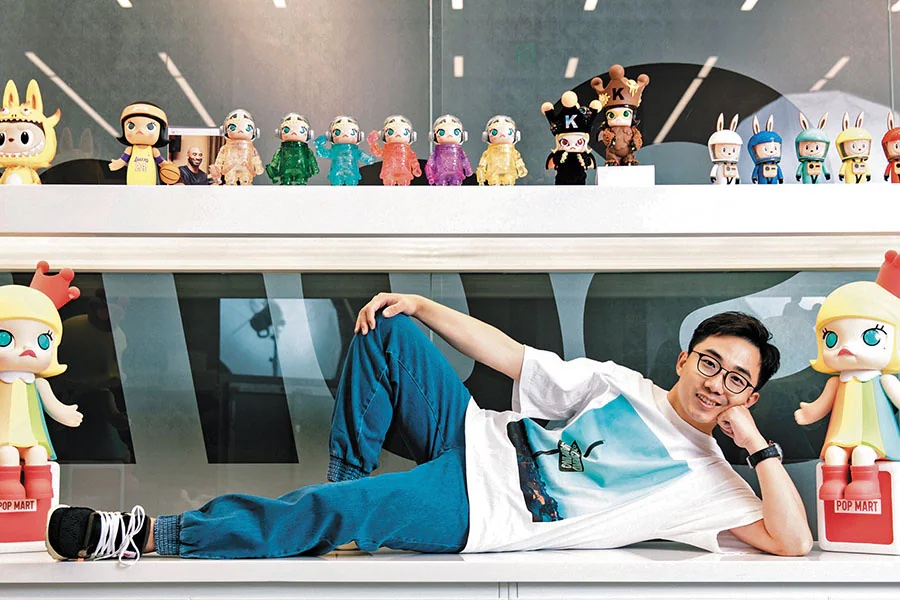


Related story: Why adults can’t stop collecting toys: The rise of designer figures and the blind box hype
While the toy manufacturer now boasts a great deal of beloved characters, including Crybaby, Hirono, Dimoo, Pucky, and Skullpanda, it is Labubu that has become the ultimate superstar. The playful, elf-like creature was created by Hong Kong illustrator Kasing Lung as part of his picture book series The Monsters, which was first produced in 2015.
Figurine maker How2work was the first company to turn Labubu into a toy in the same year. It gained wider recognition four years later, in 2019, when Lung entered into an exclusive license agreement with Pop Mart.
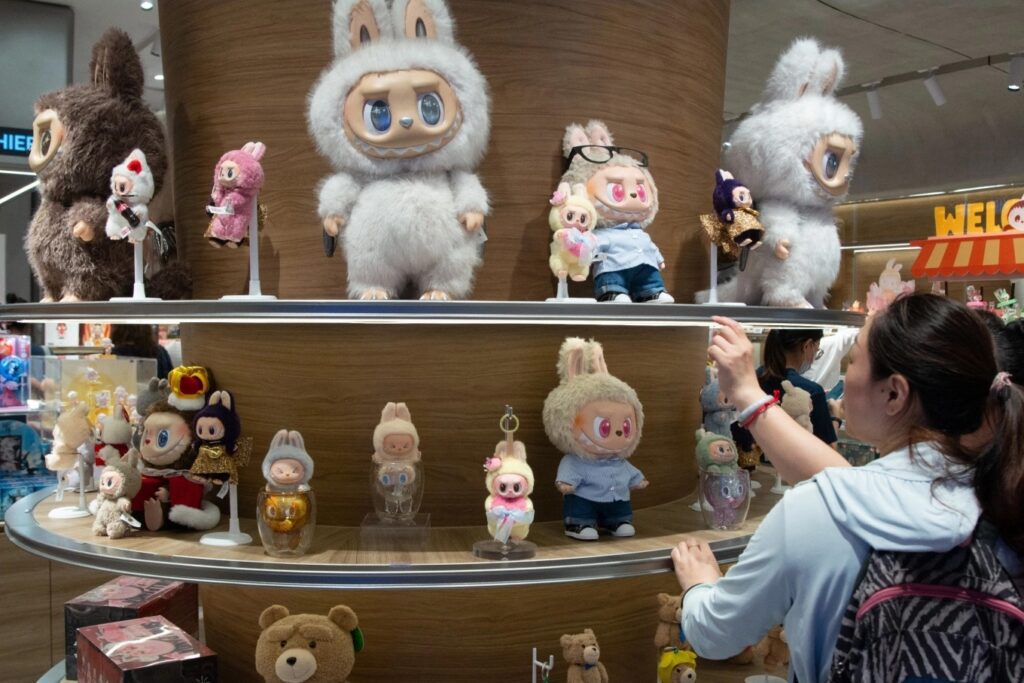


The Labubu economics
Toy enthusiast or not, anyone would know that Labubu had its breakout year in 2024. It was basically everywhere—from TikTok and Facebook to the bags, closets, and homes of celebrities and millionaires. But in case you didn’t know, this little elf that sparked a cultural phenomenon has been around in 2023.
Pop Mart first released Labubu as plush toys in key rings in October 2023, through a series called “Exciting Macaron.” It became a global viral sensation the following year, when BLACKPINK’s Lisa posted an Instagram Story showing off her Labubu bag charm and large plush figure. This led to the doll’s massive popularity and buying frenzy not only among K-pop fans but also pop culture enthusiasts all over the globe.
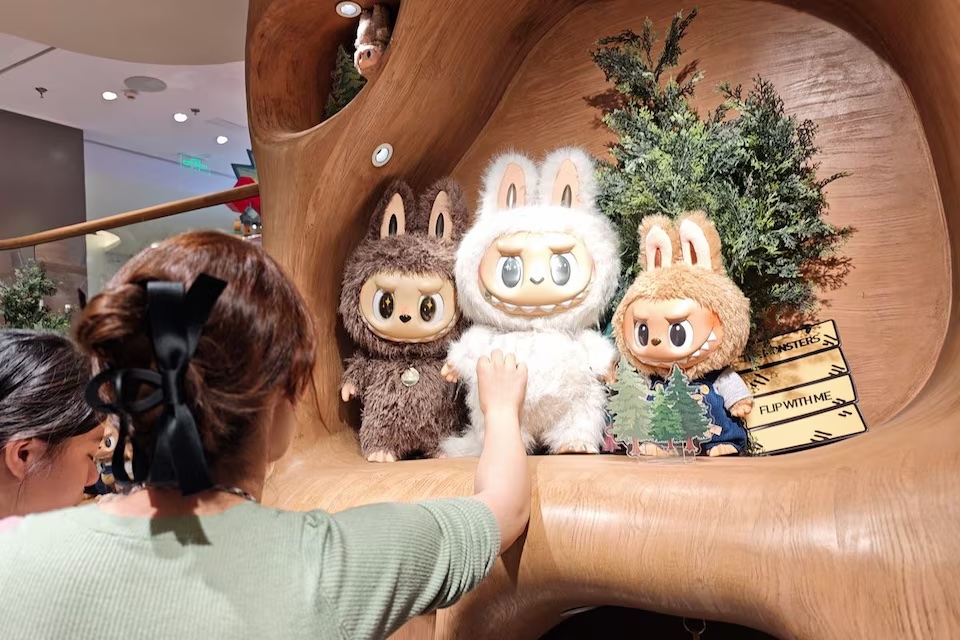


More than its “ugly-cute” aesthetic or the sense of surprise that each blind box brings, Labubu catapulted to fame because it had become a status symbol. Aside from Lalisa, the furry plushies also received celebrity endorsements from Rosé, Rihanna, Dua Lipa. Kim Kardashian, and the Philippines’ own Heart Evangelista and Marian Rivera, to name a few.
Related story: How Labubu dolls became the ‘It accessory’ we never saw coming
And that’s not all. The real catch is that these keychains, which cost at least P900, sell out within seconds they hit Pop Mart shelves. Those who would like to get their hands on the bag charm would then have to queue outside Pop Mart stores for hours, or otherwise purchase it from a seller for a price that’s double or triple the original.
The dolls aren’t cheap, but all these factors contribute to them turning into a form of affordable indulgence for adults in the “kidult” market, or those emotionally invested and willing to pay premiums for toys and other items traditionally associated with childhood. Labubu, as well as the entire blind box experience, has become a way of life for adult consumers craving excitement, nostalgia, and a sense of belonging.
“Blind boxes and art toys are a natural fusion,” Wang said. “It’s not just about buying a toy—it’s about the feeling of surprise and joy.”
Related story: Cute culture 101: A look into the science and benefits of obsessing over all things cute
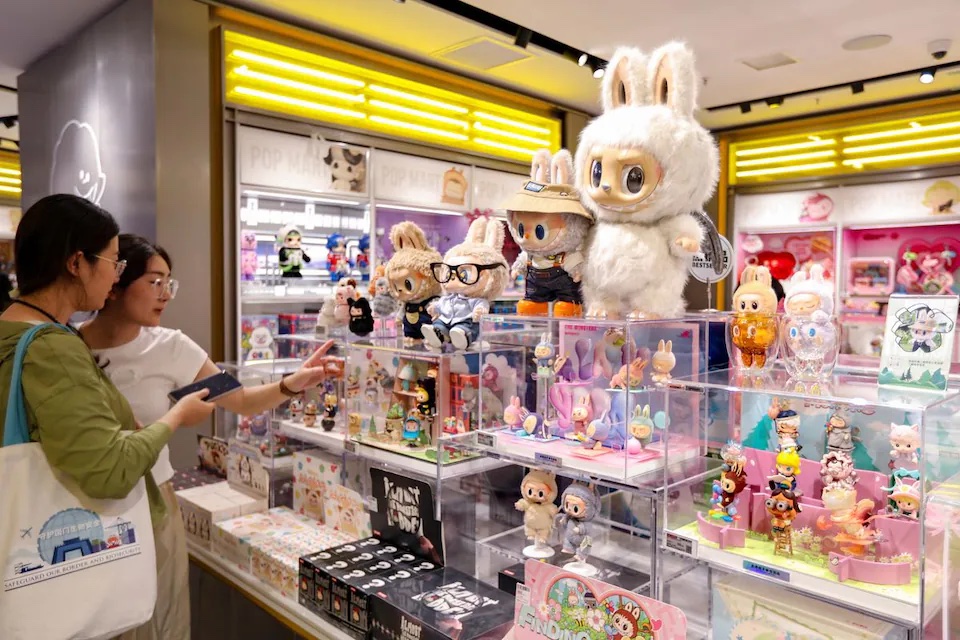


Labubu significantly became the company’s highest-grossing IP (intellectual property) in 2024. According to its annual report, Pop Mart’s revenue reached 13.04 billion yuan (US$1.8 billion), representing a 106.9% increase from the previous year. The company’s net profit, meanwhile, reached 3.4 billion yuan (US$468 million) with a year-on-year increase of 185.9%.
Of this, 617 million yuan (US$86 million) came from The Monsters franchise, which includes the beloved Labubu. It saw an astonishing 726.6% increase, becoming the company’s top-selling IP that year.
With its outstanding financial performance, Pop Mart has expanded the number of its stores to more than 530 and its roboshops (or vending machines) to over 2,490 worldwide as of December 2024. Time also reported that in the same month, over 46 million customers have already signed up as members of Pop Mart’s loyalty program.
All these led to the explosive growth of Wang’s $22.7 billion wealth, placing him among China’s richest billionaires and the youngest one to date.



